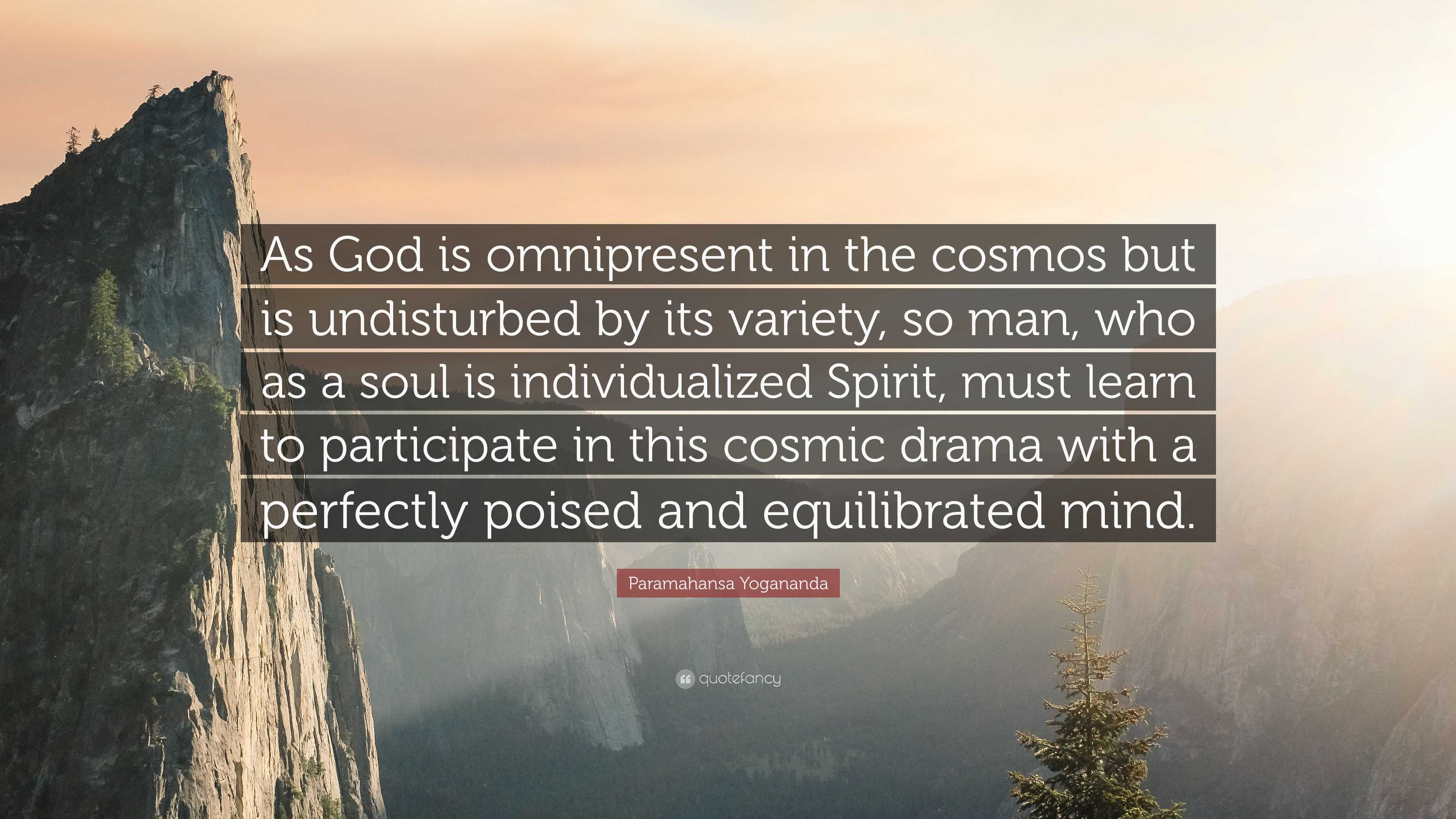

“Everywhere” and “presence,” both of which ideas are bound up in the single term “omnipresence,” are spatial, and therefore human concepts, and are thus inadequate as descriptive of God. In order to grasp the idea of omnipresence, one must imagine from our finite viewpoint at least the possibility of an entirely different order where the human forms of space and time are in no way necessary. Philosophically, the difficulty implicit in the description of omnipresence arises out of the fact that whereas man is limited by space, God is not.

Thus the Christian does walk with God, not with a part of God. In the same way or, better, for the same reason, Christ may be fully united to each believer as if that single believer were the only one to receive His presence. was fully God while at the same time God who filled and governed the universe.
#Omnipresence spirituality full#
This is the intellectual problem and the theological support for the full deity of Christ who in Pal. His nature cannot be multiplied at various points where it is operating, nor is His nature diffused. There can be no parts at work here and there. All of Him is everywhere because His omnipresence is of His essence. This leaves the door open to miracles, for He is in and through all things as He wills to be.Īgainst all finite logic it must be held also that at every point in the universe it is God’s whole presence which is present. What one observes as the uniformity of nature and the reign of law are nothing but the steady will of the omnipresent God. Not so with His own Being, for this is of the essence. He wills to uphold the existence of all things, and He could, by the same token, will not to uphold all things, and existence would end. He “inbreathes” it and “inspires” it, but His spiritual presence is not bound but free.

Although He penetrates and fills all its parts, He is not a part of it. It opposes the earlier Socinian view and the later Deistic view or any other approach that would put God in His heaven running the universe by setting it in motion and then removing Himself from it.īy the same token, it must be steadily maintained that God is not by His omnipresence bound by the universe that He has brought into existence. Although the idea of omnipresence seems inconceivable to finite minds, the fact of it must be steadily maintained. Part of the miracle of creation is that God’s omnipresence does not exclude the existence of persons and things, but rather is the “ground of being” (Tillich) which makes all other existence possible because of His Being. As a spiritual rather than a material being, He is able to penetrate and fill the universe in all its parts. It follows from the above that the omnipresence of God is of His very essence, truly an attribute. Or, more inclusively, if possible, “Do I not fill heaven and earth? says the Lord” ( Jer 23:24). “Do not say in your heart ‘Who will ascend into heaven?’ (that is, to bring Christ down) or ‘Who will descend into the abyss?’ (that is, to bring Christ up from the dead)” ( Rom 10:6, 7), or “Whither shall I go from thy Spirit? Or whither shall I flee from thy presence?” ( Ps 139:7). Neither the noun “omnipresence” nor the adjective “omnipresent” occurs anywhere in Scripture, but the idea is a Scriptural necessity: God’s presence everywhere not only is assumed in Scripture, but is frequently explicitly formulated.


 0 kommentar(er)
0 kommentar(er)
